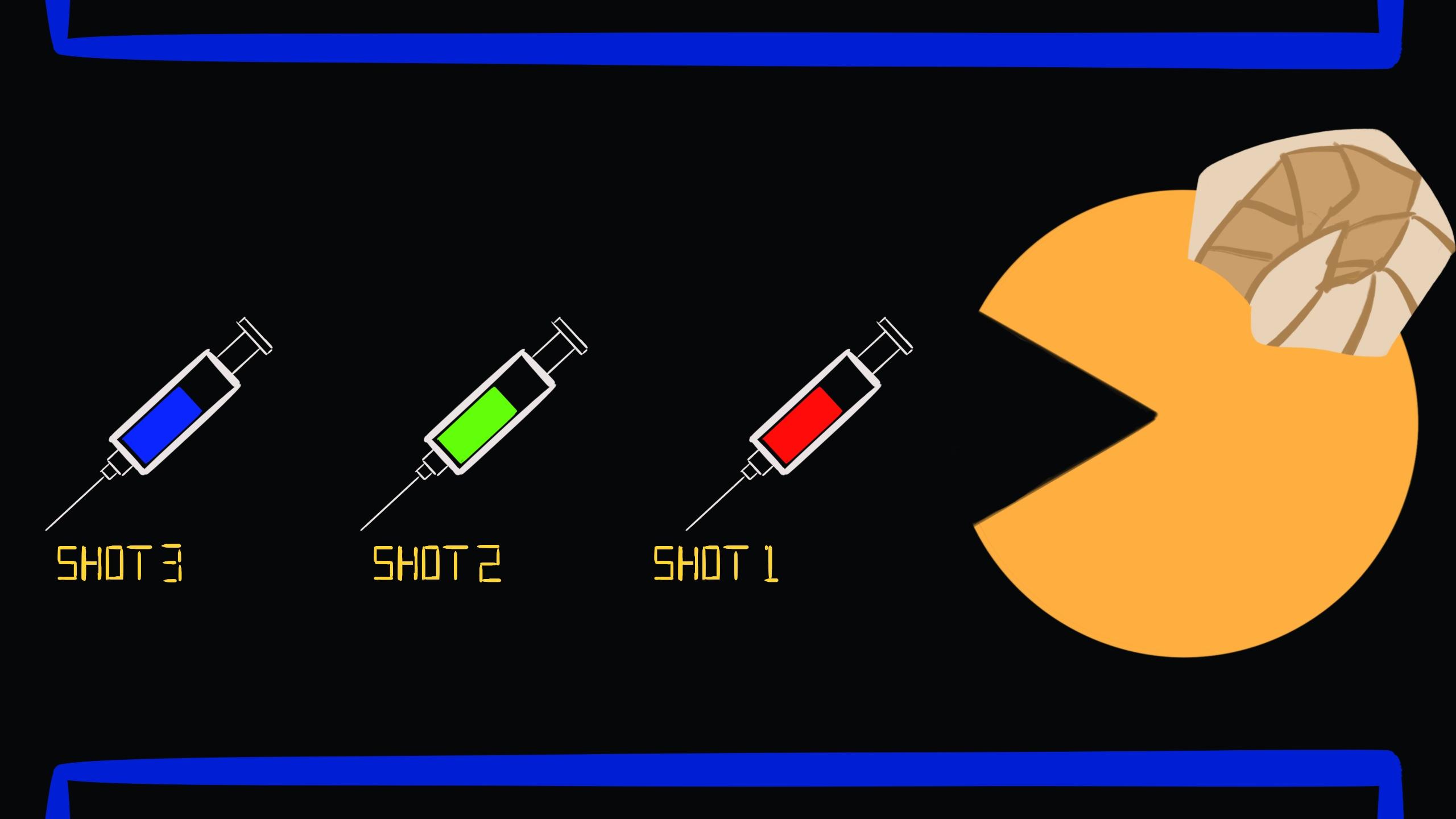By Jessica Mazze
While many may be fully or partially vaccinated, the Ontario government announced last week that high-risk individuals would be eligible to receive a third vaccine dose.
According to Global News, Ontario is the first province in Canada to approve booster shots. In the wake of rising case numbers and the new Delta variant, researchers have found that a third dose could improve vaccine efficacy among immunocompromised people.
Ryerson University will be requiring proof of COVID-19 vaccination for students and staff looking to visit campus this semester, as previously reported by The Eyeopener.
“The number one priority at the moment is to get everybody up to date with the two shots,” said Dr. Timothy Sly, professor emeritus at Ryerson’s School of Occupational and Public Health.
“There’s nothing wrong with hesitating when i comes to your health”
Sly is an epidemiologist with a background in public health, communicable and foodborne diseases. According to him, the Ontario government’s main focus at the moment is to ensure everyone is vaccinated in order to prevent the spread of COVID-19.
“If we vaccinate people, we’re less likely to pass it off,” said Sly. “Immunocompromised people, even if they weren’t vaccinated at all, they’re still going to benefit by having the vast majority of the population properly vaccinated.”
The government outlines that immunocompromised individuals include transplant recipients, cancer patients undergoing chemotherapy, long-term care residents and First Nations elder-care lodge residents.
Yet there are still so many questions, concerns and lots of anxiety around vaccine efficacy. With so much misinformation online, it can be hard to determine what’s real and what’s false.
A report on the Government of Canada website shows the vaccine efficacy of mRNA and AstraZeneca vaccines among immunocompromised people.
While adverse symptoms felt by immune suppressed and non-compromised individuals were reportedly the same, studies have shown there is a slight decrease in immune responses.
According to the report, “Study participants showed diminished or delayed immune responses to mRNA or AstraZeneca COVID-19 vaccines. The type of immunosuppressive therapy or condition affected the immune response to COVID-19 vaccines, leading to a lack of humoral and cellular responses.”
The report also states that because there’s a small number of participants, there are limitations in interpreting the data.
This doesn’t mean the vaccine is ineffective within these specific populations, as further research requires a better understanding of the data.
“There’s nothing wrong with being thoughtful and hesitating [when] it comes to dealing with your health,” said Sly. He encourages individuals to regard their health and find sensible sources when it comes to vaccine research.
“It would be in my interest to take mRNA vaccine rather than a viral vector vaccine. In other words, Pfizer or Moderna would be preferable instead of AstraZeneca.”
As reported by CBC, Canada suspended the use of AstraZeneca for people under the age of 55 after an investigation found 25 cases of rare blood clots.
As for what this means for Ryerson students, those who are immunocompromised may receive a third booster of an mRNA if they fit the criteria. This could ensure better safety on-campus as Ryerson begins to test a hybrid approach to learning this fall semester.
After a year and a half of lockdowns and virtual learning, students are excited to find some semblance of normal and return to campus for limited activities.
“All my classes are online, but I’d love to participate in any events that are on campus,” said Guled Addin, a first-year business technology management student.
“The sooner we can get everything in order, the sooner we can all be back on campus”
“I definitely think it’s a good idea to allow students who are a bit compromised to integrate better during the pandemic,” Addin said, when asked about booster shots.
Libin Addin, a first-year civil engineering student, said booster shots are beneficial for everyone planning to visit Ryerson.
“The sooner we can get everything in order, the sooner we can all be back on campus, and everything can go back to an idea of normal,” she says.
The two are commuting from Etobicoke, and are looking forward to starting their programs at Ryerson. While their classes are online, they hope that cases will be low enough so they can participate in campus life with safety protocols still in place.
In the hope for a winter semester back on campus, Sly recommended that students follow all safety protocols when entering campus, even with vaccinations and potential booster shots.
“We won’t see the numbers going up anywhere near as much as the third wave,” said Sly. “If we can put this thing down this fall, then we’ll be almost back to normal in January.”













Leave a Reply